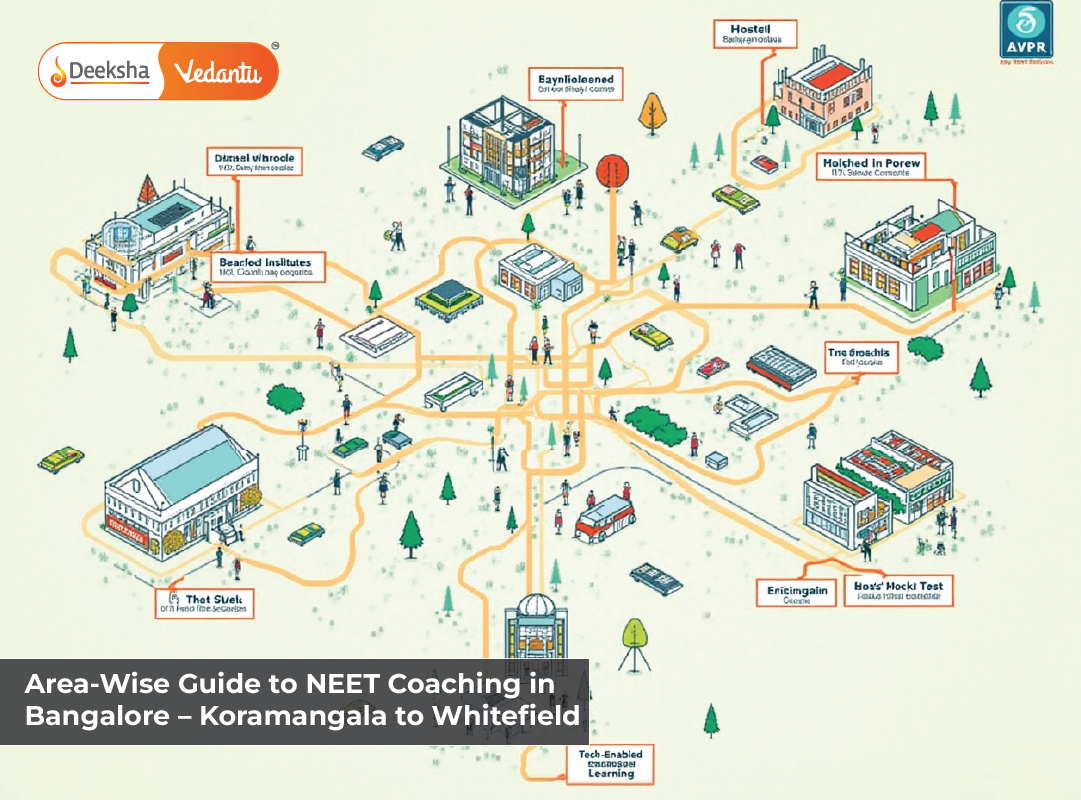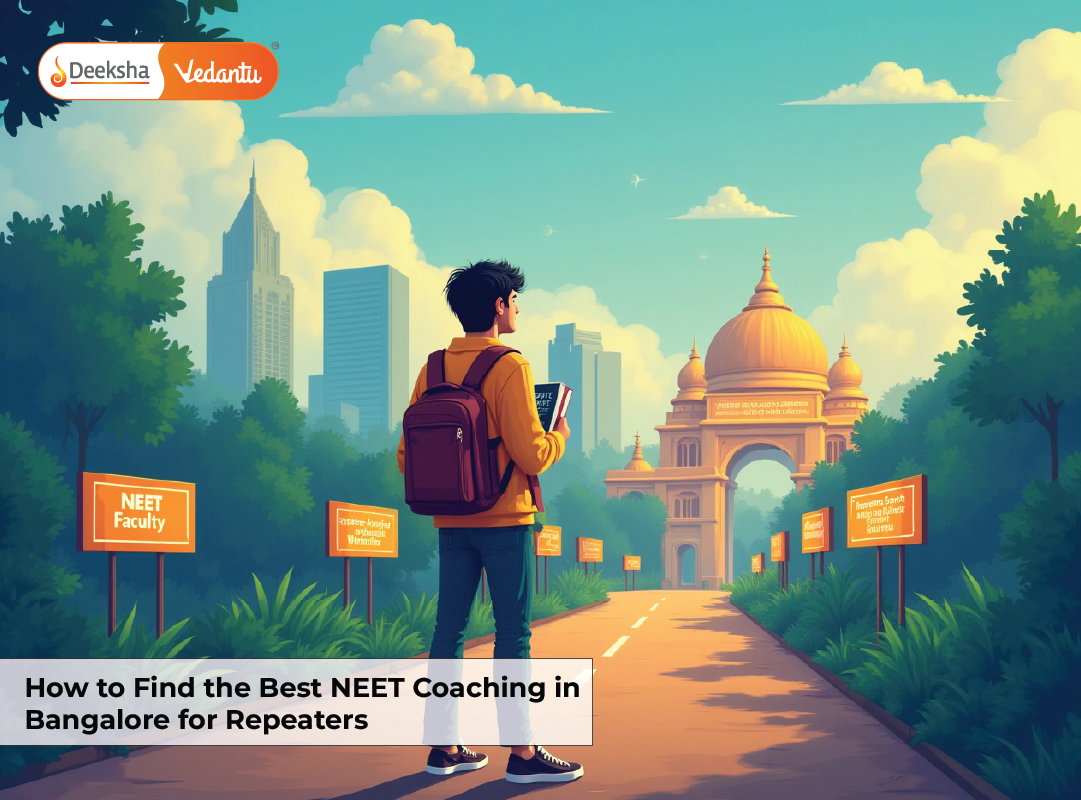Introduction
The transition from Class 10 to Pre-University (PU) marks a crucial academic and career-defining moment for students. One of the most important decisions at this stage is selecting the right stream—Science or Commerce. Each stream opens up distinct academic pathways, professional possibilities, and long-term implications for future study and employment. Unfortunately, many students make this decision based on peer influence or perceived prestige rather than true self-awareness.
At Deeksha Vedantu, we believe in empowering students to make informed decisions through personalized counseling, exposure to real-world applications, and an understanding of their unique interests and skills. In this blog, we’ll explore key decision-making factors, bust myths, offer comparisons, and provide guidance to help PU students and their families choose between Science and Commerce with clarity and confidence.
Understanding the Streams
Science Stream
Science is ideal for students interested in how the world works—be it in terms of matter, energy, biological life, or technological systems. It includes core subjects like Physics, Chemistry, Mathematics, and Biology, with optional subjects depending on the combination. It is best suited for students aspiring to pursue careers in engineering, medicine, scientific research, biotechnology, or information technology.
Science stream fosters analytical thinking, investigative skills, and a structured approach to learning, making it a gateway to numerous professional fields that demand precision and innovation.
Commerce Stream
Commerce, on the other hand, is centered around the functioning of economies, business operations, trade, accountancy, finance, and organizational behavior. Subjects typically include Accountancy, Business Studies, Economics, and Statistics. Commerce is the right stream for students interested in becoming chartered accountants, entrepreneurs, investment analysts, financial planners, lawyers, or business administrators.
It emphasizes logical reasoning, communication, decision-making, and the ability to interpret real-time data and trends in a rapidly changing economic environment.
Both streams offer rewarding opportunities and professional growth when aligned with a student’s natural interests and strengths.
Key Decision Factors
1. Interest and Aptitude
Interest and aptitude are the two most essential indicators when choosing a stream.
- Science requires curiosity about natural phenomena, critical thinking, and comfort with mathematical formulas and scientific theories.
- Commerce suits students who enjoy interpreting numbers, understanding market trends, and who possess problem-solving and business acumen.
Students should reflect on their favorite subjects from Class 9 and 10 and consider aptitude tests for additional guidance.
2. Career Goals
Clarity on career aspirations can streamline the decision process.
- Science Careers: Engineering, medicine, dentistry, pharmacology, data science, pure science research, architecture, environmental science, aviation.
- Commerce Careers: Chartered Accountancy, Cost Accounting, Company Secretary, Economics, Law, Business Management, Banking, Digital Marketing, Stock Market Analyst, Actuarial Science.
If students are undecided, both streams can offer flexibility in the future, especially with integrated career counseling and electives.
3. Academic Performance
Students who have consistently scored well in Mathematics and Science may be naturally inclined towards the Science stream. However, strong performance in Social Studies, English, or foundational Economics may indicate a better fit with Commerce.
It is important to evaluate not only scores but also the level of comfort and interest in learning more advanced concepts in those subjects.
4. Learning Style and Study Preferences
- Science stream involves practical lab work, mathematical calculations, and theoretical depth. It demands consistent effort and long study hours, particularly for entrance exams.
- Commerce, though also rigorous, is more application-based and involves analyzing case studies, understanding business strategies, and interpreting data trends.
Students should choose a stream that aligns with their preferred learning methods—be it hands-on experimentation, structured analysis, or conceptual frameworks.
5. Study Load and Time Management
Science PU students often deal with a demanding schedule, especially if preparing for NEET, JEE, or CET. This includes managing coaching, labs, assignments, and revision sessions. Commerce students typically enjoy a more flexible academic calendar but are equally challenged when preparing for professional entrance exams like CA Foundation or CUET.
Time management is key in both streams, but the intensity and distribution of academic pressure differ.
6. Long-Term Flexibility and Scope
- Science students can shift to Commerce or Arts later in college, especially if they pursue management or humanities.
- Commerce students may be limited in pursuing pure sciences or medical streams later but have broad career mobility in law, management, entrepreneurship, and creative fields.
Understanding the adaptability of each stream is important for students who wish to explore diverse interests.
Residential PU programs at Deeksha Vedantu
Comprehensive Comparison of Science and Commerce Streams
| Factor | Science Stream | Commerce Stream |
| Core Subjects | Physics, Chemistry, Math/Biology | Accountancy, Economics, Business Studies, Statistics |
| Competitive Exams | NEET, JEE, CET, NDA | CA Foundation, CUET, CS Foundation, CLAT |
| Career Paths | Doctor, Engineer, Scientist, Architect, Data Analyst | CA, Economist, Lawyer, Entrepreneur, Investment Banker |
| Work Style | Technical, analytical, research-based | Strategic, business-oriented, communication-focused |
| Study Load | High (especially with dual prep for entrance exams) | Moderate to High (based on professional goals) |
| Learning Environment | Lab work, numerical problem-solving, theory-heavy | Case-based, practical, economically relevant |
| Post-PU Options | B.Tech, MBBS, B.Sc, BCA | B.Com, BBA, BA Economics, Law, Management Courses |
Myths vs Reality
Myth: Science is superior to Commerce. Reality: Both streams offer equally prestigious and financially rewarding careers. The value lies in choosing what fits you best.
Myth: Only students with high marks can pursue Science. Reality: Aptitude and interest are more important than marks. With the right support, anyone can thrive.
Myth: Commerce is for students who want to avoid hard work. Reality: Commerce demands consistent effort, especially for professional certifications like CA or CS.
Myth: Science guarantees better job opportunities. Reality: Job prospects depend on skillsets, networking, and market trends—not just the stream.
Myth: Stream choice is irreversible. Reality: While stream changes can be difficult, they’re not impossible. Bridge courses, electives, and lateral entries exist.
Role of Career Counseling
When students are unsure, career counseling can provide much-needed clarity. Professional counselors use tools like psychometric tests, one-on-one interviews, and stream-specific workshops to help students make evidence-based choices.
Career Counseling at Deeksha Vedantu Includes:
- Psychometric Analysis: Evaluates aptitude, interest, personality traits
- Stream Awareness Programs: Webinars and sessions on subject scope and careers
- Alumni Interactions: Hear from students who’ve walked both paths
- Parent Involvement: Ensuring family alignment in the decision process
- Regular Check-ins: Ongoing support as students progress in PU
This supportive environment reduces pressure and allows students to confidently move forward.
FAQs
Can I take Commerce if I’m good at Math?
Absolutely. Commerce with Math opens up lucrative fields like actuarial science, data analytics, financial modeling, and economics.
Does Science ensure higher salaries than Commerce?
Not always. Many careers in Commerce, such as investment banking or entrepreneurship, offer competitive or even higher salaries.
Can I switch to Science after choosing Commerce?
Switching back to Science is usually restricted due to its technical demands and prerequisites. However, interdisciplinary courses in college may offer flexibility.
Can a Science student pursue Law or MBA later?
Yes. Science students can pursue law (through CLAT) or management after graduation via CAT, GMAT, or similar exams.
What if I make the wrong choice?
Don’t panic. Talk to mentors, explore elective courses, and consider transitions early. Deeksha Vedantu supports stream transitions and academic realignment based on performance and passion.
Conclusion
Choosing between Science and Commerce in PU isn’t just about subjects—it’s about aligning education with passion, aptitude, and career vision. It’s a decision that deserves thoughtful evaluation, open conversations, and expert guidance.
At Deeksha Vedantu, we’re committed to helping students make informed stream choices through mentoring, workshops, career counseling, and ongoing support. We understand that each student is unique, and our goal is to help them unlock their true potential—no matter the path they choose.
Table of Contents















Get Social